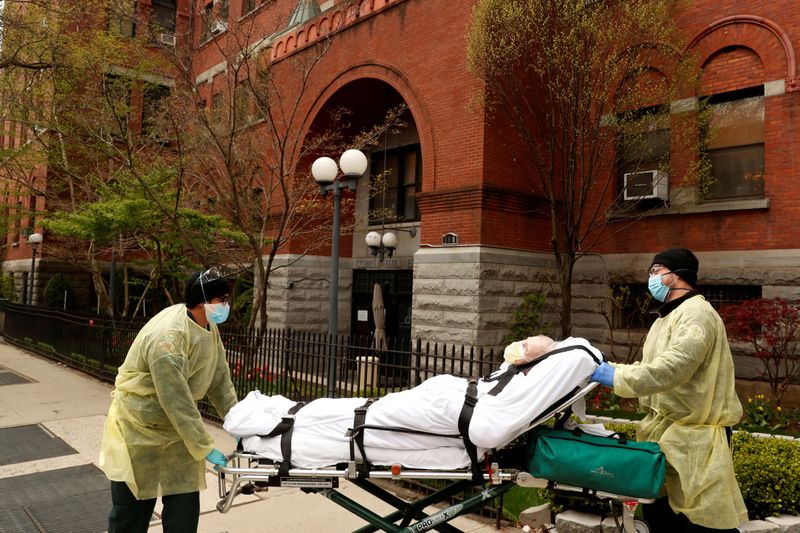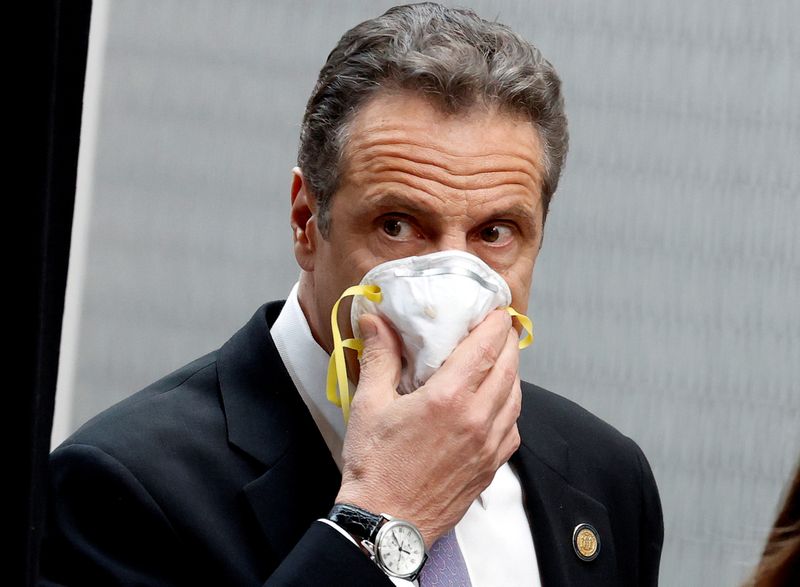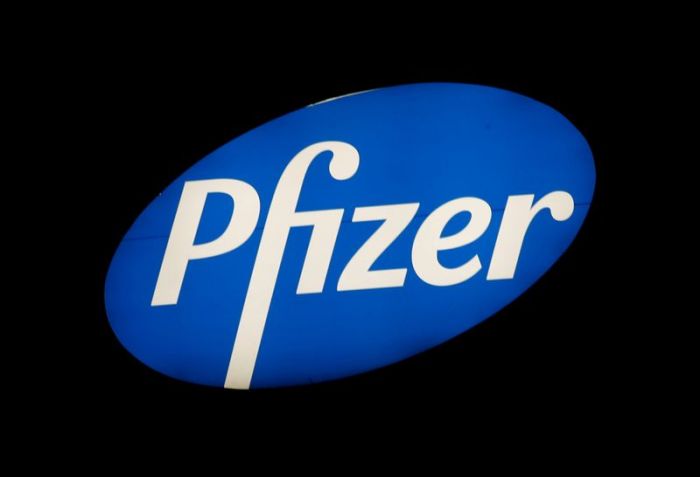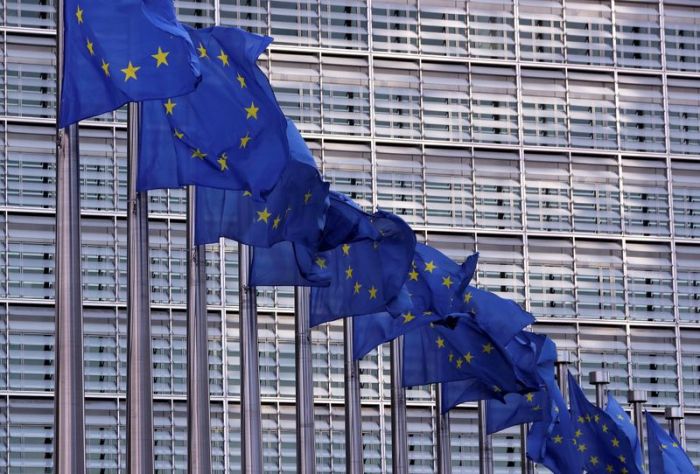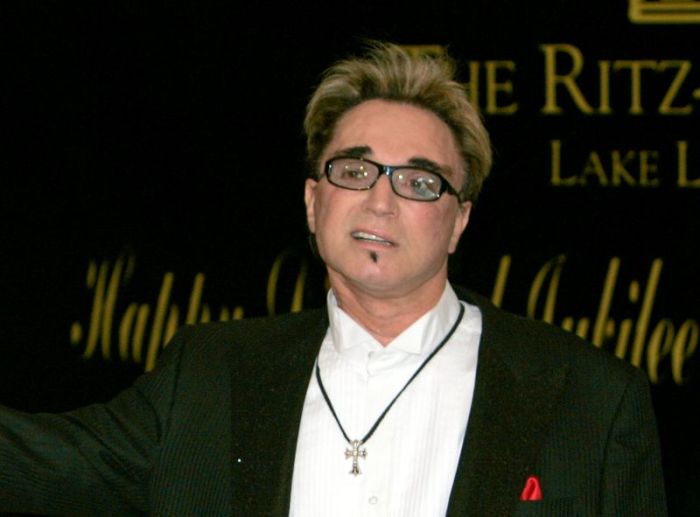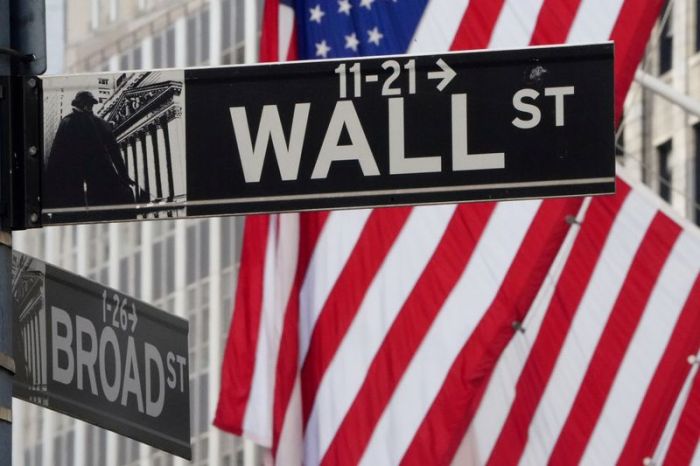(Reuters) – New York state on Sunday announced new coronavirus-safety measures to better protect nursing home residents, who are highly vulnerable to the respiratory illness and account for a large share of the nearly 80,000 Americans who have died from it.
The effort to step up infection-prevention measures at New York’s nursing homes and adult care facilities came as the state hardest hit by the pandemic has registered a downward trajectory in its daily overall COVID-19 death toll and hospitalizations.
Numbers are on the rise elsewhere across the country, however, as dozens of states have moved in recent weeks to relax business restrictions meant to curb the spread of the coronavirus, which has infected at least 1.3 million Americans.
Governor Andrew Cuomo said he has ordered all nursing home staff to be tested at least twice a week for the virus and is barring hospitals from discharging any COVID-19 patient to a nursing facility until that individual tests negative for infection.
If a nursing home is deemed unable to provide proper treatment and support for a recovering resident, that person is to be transferred to the care of the state, which Cuomo said now has ample hospital bed capacity for such patients.
“Our No. 1 priority is protecting people in nursing homes,” Cuomo said. “It’s where it (COVID-19) feeds.”
Elderly individuals and people with underlying chronic health conditions are among those at highest risk for severe illness and death from COVID-19, the lung disease caused by the novel coronavirus.
Nursing homes, long-term care facilities and assisted-living centers have registered some of the most lethal localized outbreaks across the country, including the nation’s first major known cluster of COVID-19 cases and deaths in suburban Seattle.
Nearly 5,400 residents of nursing homes and adult care facilities have died from confirmed or presumed COVID-19 infections since March 1 in New York state alone, Health Department data shows. That comes to about 20% of 26,656 coronavirus deaths overall in New York to date.
Nursing home residents account for an even greater portion of COVID-19 mortality in other parts of the country – 28% in Indiana, 38% in California and 80% in Minnesota, according to state figures.
PEDIATRIC CASES
While senior citizens are particularly vulnerable to COVID-19, New York also is investigating up to 85 cases of children with a rare inflammatory condition believed to be linked to the coronavirus. So far three of those children, who also tested positive for the virus, have died in New York, and two more deaths are under review, Cuomo said.
The pediatric cases in question share symptoms with toxic shock syndrome and Kawasaki disease, which can include inflammation of the blood vessels and potentially fatal heart damage.
While New York continues to see declines in key measures of the pandemic — its hospitalizations on Sunday hit a seven-week low — many states, including Minnesota, Nebraska, Iowa and Kansas, are reporting rising case tallies even as they move to reopen their economies.
Michigan was due to allow factories to resume production starting on Monday, removing a major obstacle to North American automakers seeking to bring thousands of idled employees back to work this month. California gave the go-ahead to manufacturing and warehouse facilities to reopen under certain restrictions on Friday after a seven-week lockdown.
The stakes could hardly be greater. Stay-at-home orders and mandatory business closures have devastated the U.S. economy and thrown some 33.5 million Americans out of work in less than two months – a level of joblessness not seen since the Great Depression of the 1930s.
Public health experts have warned that precautions needed for reopening to proceed safely, such as vastly expanded diagnostic testing and contact tracing, have yet to be put in place, risking a major resurgence of the virus.
It also remains to be seen whether many consumers are willing to venture back into shopping malls and restaurants in the midst of a pandemic for which there is no vaccine and no cure.
The White House has opened informal talks with Republicans and Democrats in Congress about next steps on coronavirus relief legislation, officials said on Sunday, but they stressed any new federal money would come with strings attached.
The coronavirus has in recent days invaded the White House itself, with a valet to President Donald Trump and the press secretary for Vice President Mike Pence each testing positive. As a result, three senior health officials guiding the U.S. response to the pandemic have gone into self-quarantine, .
Anthony Fauci, the nation’s top infectious disease specialist, is considered to be at relatively low risk based on the degree of his exposure. Also quarantining are Robert Redfield, director of the Centers for Disease Control and Prevention (CDC), and the commissioner of the Food and Drug Administration, Stephen Hahn.
(Reporting by Maria Caspani in New York and Rich McKay in Atlanta; Writing by Lisa Shumaker and Steve Gorman; Editing by Daniel Wallis)

